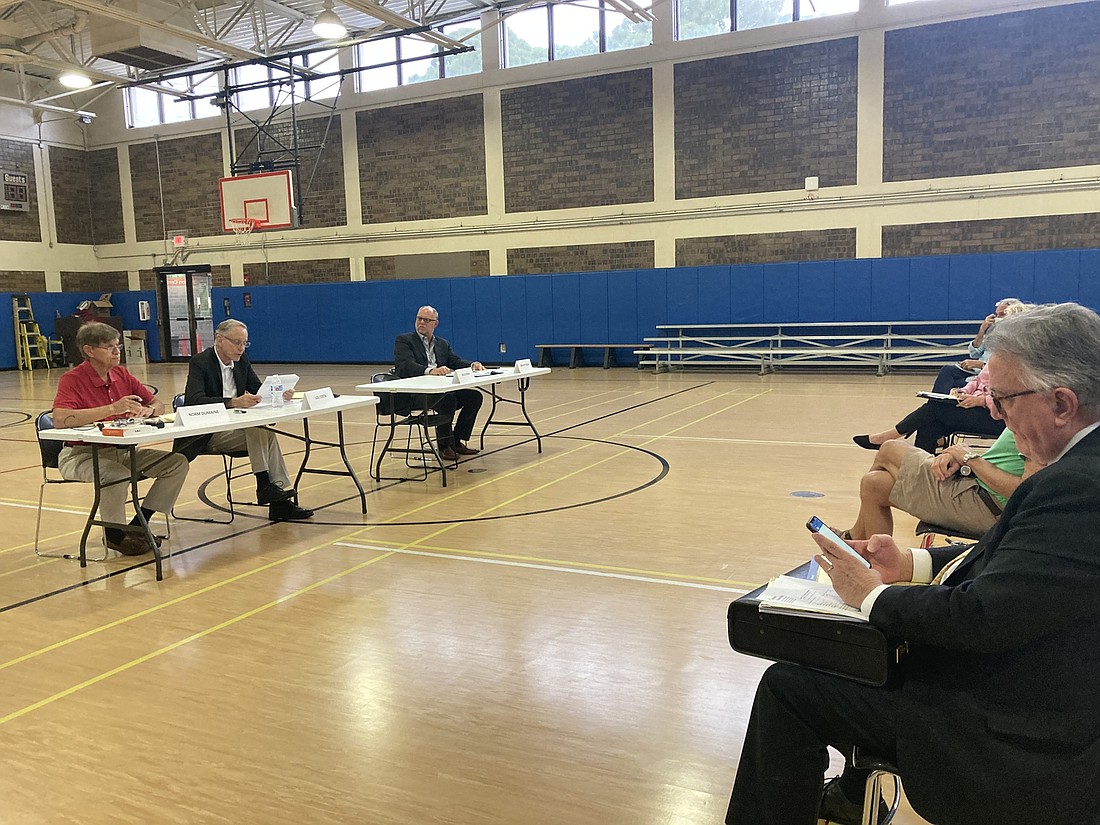- October 19, 2022
-
-
Loading

Loading

Representatives for the county, city and school district are putting together plans for spending nearly $2 billion between 2024 and 2039 — even though there’s no guarantee that money will come to fruition.
Local governments in Sarasota are in the midst of a campaign to extend the one-cent infrastructure sales tax, colloquially known as the penny tax, for another 15 years. The sales tax, which must be authorized by voters, won’t go to a referendum until next year. Before the formally putting the penny tax on the ballot, officials are working to build support for what they see as an essential source of revenue.
“We never think of it getting a no vote,” said Doug Jeffcoat, the city’s public works director.
That’s why, on Sept. 16, representatives for the city held a meeting at Arlington Park to solicit community input on plans for spending a cut of sales tax funds. The meeting was lightly attended, and two members of the public spoke.
Jeffcoat said that’s in line with outreach efforts at the beginning of past surtax reauthorizations, the last of which came in 2009. He anticipated more people would engage with the process as it advances, and he said the lack of early feedback was a sign that citizens feel confident officials are already in tune with their priorities.
“I think that we hear a lot of what the needs are for the neighborhoods,” Jeffcoat said. “I’m not as concerned as if we didn’t have those relationships.”
One of the people who spoke at the Arlington Park meeting was Andy Tugendhat. He encouraged the city to pursue environmental projects, particularly those related to mitigating and adapting to climate change. He said he thought climate response was a crucial aspect of long-term planning, particularly for funds restricted to capital spending.
“Not everyone thinks this way, but it is a factor as to whether this place is going to be livable or not, so we’ve got to take this serious,” Tugendhat said.
The other speaker, Dan Lobeck, called on the city to be more specific with how it planned to spend funds, rather than listing a generalized project name. Jeffcoat said the specificity of the city’s plans would depend on the nature of the project, but he said officials wanted to be as forthright as they could.
“The sidewalk program isn’t going to list out every street, because I would have every street in the city listed out,” Jeffcoat said. “But when you get to things such as parks, those types of things will get really detailed — replacing gazebos, replacing a playground structure.”
The list that local governments develop for consideration alongside the referendum aren’t binding. If circumstances change or new opportunities arise, there’s a process for officials to adjust spending plans. Still, any changes have to go through a public hearing and review from an oversight committee, so Jeffcoat said there’s an incentive to create a plan that thoughtfully anticipates the needs of the next 15 years and beyond.
“We want to make sure there’s enough detail in the description of the projects that people are comfortable, because at the end of the day, this is about getting a ‘Yes’ vote,” Jeffcoat said.